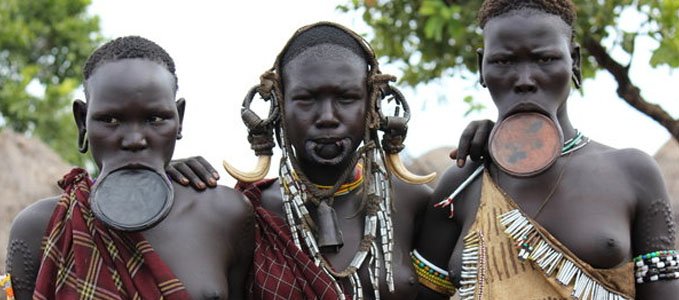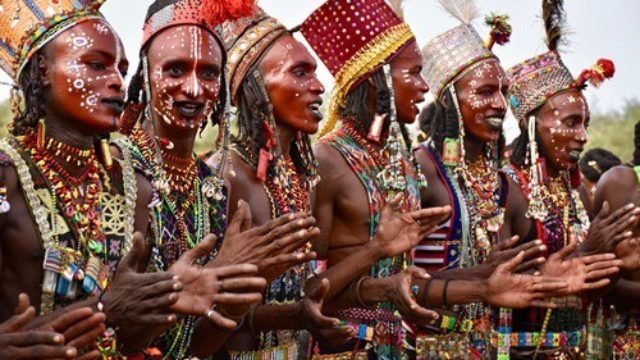Let’s start by getting this right, Africa is not a country. It’s a continent, the second largest for that matter. Her traditions are ingrained into the whole of African culture. They are expressed through different forms of art such as dance, music, sculptures, art and bead-work.
Did you know that Africa is the richest continent when it comes to matters natural resources? Ironically, it’s also considered the poorest continent on earth. It’s such an interesting world, isn’t? Well, at times I relate this to a sleeping lion. Could be the continent is trying to play cool and show what it’s made of against the greatest economies of the world when it matters most. Anyway, truth be told, the poverty of Africa is just a big misconception. There might be poverty, just like in any other continent, but not every African country is poor, and honestly it all depends on the angle you look at it. Happiness is relative- a poor man living on $2 a day in Africa may be happier than one struggling to make a living with $150 a day in the West.

While we are on the topic of Africa, let’s explore some of the aspects that makes the continent unique. Africa boasts of over 3,000 ethnic communities. It has myriad of bizarre traditions some of which are known to the world, and many others that will probably shock you. The upholding of these ethnic traditions and beliefs years after civilization are just some of the bizarre customs that makes the people of Africa so unique and colorful. Check out some of them below:
The spitting of the Maasai
The Maasai people are found in Kenya and Northern Tanzania. They are a lot that has unswervingly remained true to their nature and culture. Theirs has never been an imitation of a foreign perfection, it is innate.

Now, have you ever imagined being greeted by being spat upon? Chances are you even don’t want to think about that during this Coronavirus pandemic whereby simple saliva sprays can easily make you sick. However, for the Maasai’s that’s how they play it cool. They consider spitting to be a form of blessing and a sign of respect. Tribesmen greet by spitting on each other. When greeting an elder, the Maasai warriors (young men) first spits in his hand before he extends it for a handshake. That’s respect.

As if that’s not enough, when a baby is born among the Maasai community, family members spit on the baby’s palm or chest to with him or her good luck and long life. After a wedding ceremony, the daughter’s father also spits on her forehead in order to bless her union. This cool lot is also famous for eating raw meat and drinking fresh milk and blood from cows.
The lip plates of Mursi girls in Ethiopia

Wearing of lip plates was a norm for women in most tribes in Africa. However, it seems to have disappeared with time, save for the Mursi tribe in Ethiopia. When a Mursi girl attains the age of 15 years, her mother or an elderly woman cuts her lower lip. The cut is then held by large pottery or wooden plates for about three months as it heals. How do you fancy that? Despite the lip piercing being a personal choice, many girls still opt for the lip plates.
The bull jumping of the Hamar

Hamar is a pastoralist community in Ethiopia. This tribe is renowned for its treasure for cattle and also for its athletic initiation ritual. For a boy to be allowed to marry, he has to undergo this rite of passage for his own dignity and that of his family. Bull jumping is normally a three day initiation ceremony that boys ought to partake. You think you are grown and ready to start seeing that lady? How does if jumping some of these bulls naked to earn it?

Fifteen castrated bulls are smeared with dung to make them slippery and the exercise tougher. The initiate is then made to strip naked, run and jump over those bulls and must not fall. If he falls, he’s made to wait for a whole year in order to have a chance to try again. If he is successful, he is allowed to marry the girl of his parents’ choice. It means he can now raise his own cattle and kids.
Stealing of wives

In Niger, the Woodaabe tribe practices some creepy wife swapping, or what most people would chacterize as wife stealing. This is not some gamefication or a made-up story; it’s for real. Here is how they do it: the first marriage is arranged by their parents during infancy. These marriages are normally between cousins from the same lineage. After that, there follows the annual festivals whereby the Wodaabe men wear to impress (example in the picture above), dance,and hopefully steal a new wife. If one is able to steal a wife undetected, they become socially recognized.If you asked me, I’d say there’s got to be some decent code in place for shenanigans!
Chewa’s festival of the dead

Chew is a Bantu tribe found in Malawi. When its tribe member dies, they wash the body according to the customs. The corpse is then taken to a sacred place for cleansing ceremony. The cleaning entails slitting of the throat and then pouring water through the insides of the corpse. The water is passed through until it comes out clean. It is then collected and used to cook a meal for the whole community.
Get a beating in order to earn a wife

This is a cultural practice that’s common among the Fulani tribe in Nigeria. Fulani are semi-nomadic, pastoralist ethnic group. The practice is called Sharo and it’s done before marriage. It involves thorough beating of the groom by older members of the community. This makes him earn respect and permission to get the wife. In case the man fails to bare the pain of the flogging, the wedding is called off. Worse still, the dowry payment can be reimbursed. Would you stand a beating to earn a wife? Is this a system set in place to treat one’s wife right?
Potency test among the Banyankole tribe in Uganda

For this minority tribe in Uganda, marriages are viewed as untold burden for the bride’s aunt. As such, before a couple marries, the groom is made to taste the cookie of the bride’s aunt as a ‘potency test.’ Also, the aunt has to test the bride’s virginity.
Good luck trying to make sense of all these tribal practices without the ability to travel into past times!
The healing dance of the San
This is arguably the most magical of all these African tribal cultural practices. San are an ethnical group found in Namibia, South Africa, Botswana and Angola. For them, dance is a sacred power. In a bid to cast out physical illnesses and evil forces such as anger and jealousy, the community performs the healing dance. The entire community gathers around a fire for an entire night and is led by community elders in dancing around the fire. During the dance they chant to induce ‘super powers.’ Afterwards, they get access to the spirit realms and can even ‘walk over the fire.’ It seems that San is not the only community that believes in such rituals, recently communities in Kenya also held rituals to chase away the Covid-19 pandemic out of their communities.

Final Thoughts
Birds have it. Bees have it. Better said, we all have our traditions and cultures. It’s upon us to be proud of our practices, if we don’t, no one will. It’s equally upon us to be sensitive to time as it changes, and evolve our practices in our own terms, or others will. They’ll put us down while imposing there reasoning on us. Hopefully, we can appreciate some of these African cultural values, understand and legislate those that need to go the museums of history. We must let the next generation know that we care about the future just as we care about the past, and that we use the present right as the vital tool in our disposal.
Okay, I’ve fired at you my own thoughtful opinion on some of our African strange cultural practices that I thought the world should know about. Can you fire back at me on your thoughts? Let me know on the comments section below. Waiting to read from you!







